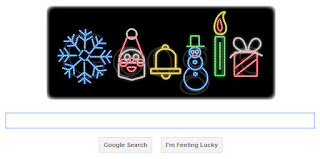Are check-in apps just a fad or are they the future of local business marketing? It may still be too early to tell, but I'm starting to lean toward the latter, because this space is only picking up more and more steam, and businesses and marketers are getting excited about it as more apps continue to flood the mobile app markets.
Are check-in apps just a fad? Tell us what you think.
At PubCon this week, WebProNews spoke with Gib Olander, director of biz dev atLocaleze, which provides local business listings to all kinds of sites and apps. He certainly seems convinced that location-based services (LBS) are here to stay.
"Geo-location is just an outstanding place, and the way I think about it is, we started with a big search box and we all kind of wanted to find answers to 'what' questions and things have evolved pretty quickly to a 'what' and a 'where', so we did a geo-modifier," he tells us. "We added a state or a zip code or a city. We started to find more information."
Putting the "Where" and the "When" in Marketing
"Nicely, social layers added on top of that where you start to get your Facebook and your friends' recommendations," he continues. "Yelp did a great job with reviews, and then Foursquare came along, and they've added a really neat new component with this check-in feature, and there's other sites that are doing it as well, like Brightkite and SCVNGR, but one of the things I think is really neat and new for marketers is they've added the time of 'when.'"
That "when" is a key factor in executing a successful campaign, and it's one that just hasn't been able to get nearly as precise in marketing channels of the past. The mobile device in customers' pocket tracking right where they are when they're there (particularly when they're sharing this information on purpose) is astonishingly powerful.
Are check-in apps just a fad? Tell us what you think.
At PubCon this week, WebProNews spoke with Gib Olander, director of biz dev atLocaleze, which provides local business listings to all kinds of sites and apps. He certainly seems convinced that location-based services (LBS) are here to stay.
"Geo-location is just an outstanding place, and the way I think about it is, we started with a big search box and we all kind of wanted to find answers to 'what' questions and things have evolved pretty quickly to a 'what' and a 'where', so we did a geo-modifier," he tells us. "We added a state or a zip code or a city. We started to find more information."
Putting the "Where" and the "When" in Marketing
"Nicely, social layers added on top of that where you start to get your Facebook and your friends' recommendations," he continues. "Yelp did a great job with reviews, and then Foursquare came along, and they've added a really neat new component with this check-in feature, and there's other sites that are doing it as well, like Brightkite and SCVNGR, but one of the things I think is really neat and new for marketers is they've added the time of 'when.'"
That "when" is a key factor in executing a successful campaign, and it's one that just hasn't been able to get nearly as precise in marketing channels of the past. The mobile device in customers' pocket tracking right where they are when they're there (particularly when they're sharing this information on purpose) is astonishingly powerful.
"When someone is there really changes the relevancy of what kind of information you want to share with them - what kind of things you want to talk to them about," says Olander. "So, geo-location has added all those...kind of layers: the who, what, where, why, and when on top of each other, and it's created new opportunities for businesses to talk to their customers, and for customers to discover new businesses, and I think that's just really exciting for our space."
"Michael Metcalf from Yahoo talked about this at a conference," he recalls. "Your spatial network is just about as important as your social network. So who's around you and when they're around you both from a physical location, and businesses need to be aware of that with other businesses, but also people around you. Because when people congregate in an area, they leave a pyschographic imprint of who they are and what they are, and why they're there. And marketers can tend to look at that."
"Like so right now at PubCon, if you were tracking this event, you would see that by the profiles people have when they're here now at this particular time...you know, we've got a lot of interesting SEO and SEM and geo-location and marketing and targeting," Olander explains. "So as a marketer or advertiser...and a big feel for tech...so maybe if you're the Marriott nearby, you could start to target the area during the hours that we're here with special offers of free wi-fi or that type of thing."
Which Check-In Apps Should I Utilize?
One challenge that marketers face along with these types of opportunities is knowing which services to utilize. There are seemingly new check-in apps coming out just about every day. Foursquare is the one that's gotten the most attention thus far, but there are plenty of others breathing down that company's neck to be the "it" check-in app - the Facebook to Foursquare's MySpace. Of course, Facebook itself is doing more in this space with its Facebook Places product. It will be interesting to see how other apps co-exist with that. Facebook Places is only going to get bigger and bigger. The social network has over half a billion user, let's not forget.
"I think the real competition from the Facebook ecosystem is gonna come from third-party developers like Zynga that build on top of the Facebook Places API, because you'll notice with Facebook Places that they haven't done anything with like virtual goods like badges or points, and these are some of the main attractions of Foursquare and Gowalla," Lawrence Coburn, who runs the geo-location app provider DoubleDutch recently told WebProNews. "So they've just left that open, but I know that third-party developers won't be so shy, and they'll come in and make games, because there's a lot of good game developers on Facebook."
That's certainly another advantage for the social network giant, but that doesn't mean it's time to consider the rest of these apps doomed.
Foursquare itself has some pretty big plans, particularly for local businesses. CEO Dennis Crowley talked about this at ad:tech last week. "The harder part is consumer brands...consumer packaged goods," he said, adding that it's hard to find a practical way to use Foursquare to sell things like batteries or cereal. The local business stuff is much more obvious though, and what may not work with Foursquare or even Facebook Places, may work with another app.
"Across the board, they're all really important," says Olander. "I think there's a stat out that there's more than six thousand LBS apps on the iPhone alone, so fragmentation is a reality of the marketplace. What we think, at Localeze, is that you look at each one of them as an opportunity...what you really have to establish is your business identity online."
"It used to be that you could just have a brick and mortar store, and put a nice awning up or a nice sign up, and people would walk by and find you," he adds. "But today, you really have to own that online presence, and that starts with owning your name/address/phone number. You make sure it's consistent in multiple applications, and then you're starting to cover them all. You start to monitor each of those and see where most of the foot traffic, or where your audience or customers are, and then really interact with those and create unique content offers for them."
"Michael Metcalf from Yahoo talked about this at a conference," he recalls. "Your spatial network is just about as important as your social network. So who's around you and when they're around you both from a physical location, and businesses need to be aware of that with other businesses, but also people around you. Because when people congregate in an area, they leave a pyschographic imprint of who they are and what they are, and why they're there. And marketers can tend to look at that."
"Like so right now at PubCon, if you were tracking this event, you would see that by the profiles people have when they're here now at this particular time...you know, we've got a lot of interesting SEO and SEM and geo-location and marketing and targeting," Olander explains. "So as a marketer or advertiser...and a big feel for tech...so maybe if you're the Marriott nearby, you could start to target the area during the hours that we're here with special offers of free wi-fi or that type of thing."
Which Check-In Apps Should I Utilize?
One challenge that marketers face along with these types of opportunities is knowing which services to utilize. There are seemingly new check-in apps coming out just about every day. Foursquare is the one that's gotten the most attention thus far, but there are plenty of others breathing down that company's neck to be the "it" check-in app - the Facebook to Foursquare's MySpace. Of course, Facebook itself is doing more in this space with its Facebook Places product. It will be interesting to see how other apps co-exist with that. Facebook Places is only going to get bigger and bigger. The social network has over half a billion user, let's not forget.
"I think the real competition from the Facebook ecosystem is gonna come from third-party developers like Zynga that build on top of the Facebook Places API, because you'll notice with Facebook Places that they haven't done anything with like virtual goods like badges or points, and these are some of the main attractions of Foursquare and Gowalla," Lawrence Coburn, who runs the geo-location app provider DoubleDutch recently told WebProNews. "So they've just left that open, but I know that third-party developers won't be so shy, and they'll come in and make games, because there's a lot of good game developers on Facebook."
That's certainly another advantage for the social network giant, but that doesn't mean it's time to consider the rest of these apps doomed.
Foursquare itself has some pretty big plans, particularly for local businesses. CEO Dennis Crowley talked about this at ad:tech last week. "The harder part is consumer brands...consumer packaged goods," he said, adding that it's hard to find a practical way to use Foursquare to sell things like batteries or cereal. The local business stuff is much more obvious though, and what may not work with Foursquare or even Facebook Places, may work with another app.
"Across the board, they're all really important," says Olander. "I think there's a stat out that there's more than six thousand LBS apps on the iPhone alone, so fragmentation is a reality of the marketplace. What we think, at Localeze, is that you look at each one of them as an opportunity...what you really have to establish is your business identity online."
"It used to be that you could just have a brick and mortar store, and put a nice awning up or a nice sign up, and people would walk by and find you," he adds. "But today, you really have to own that online presence, and that starts with owning your name/address/phone number. You make sure it's consistent in multiple applications, and then you're starting to cover them all. You start to monitor each of those and see where most of the foot traffic, or where your audience or customers are, and then really interact with those and create unique content offers for them."

 Ayo Indonesia Bisa
Ayo Indonesia Bisa












